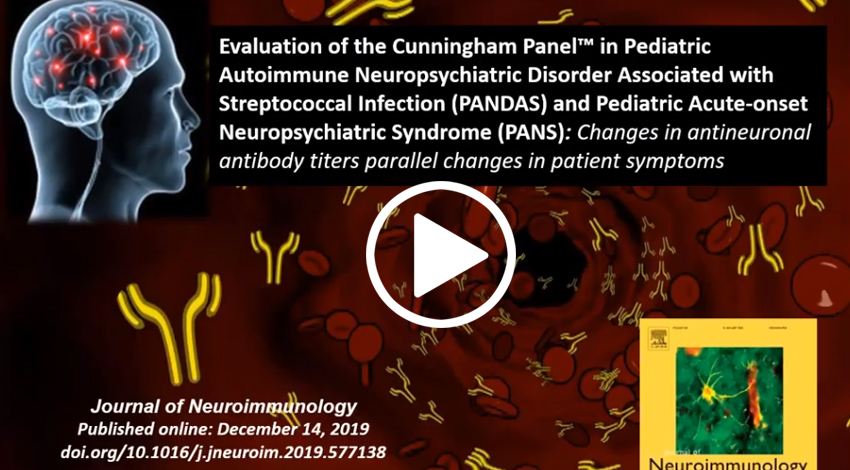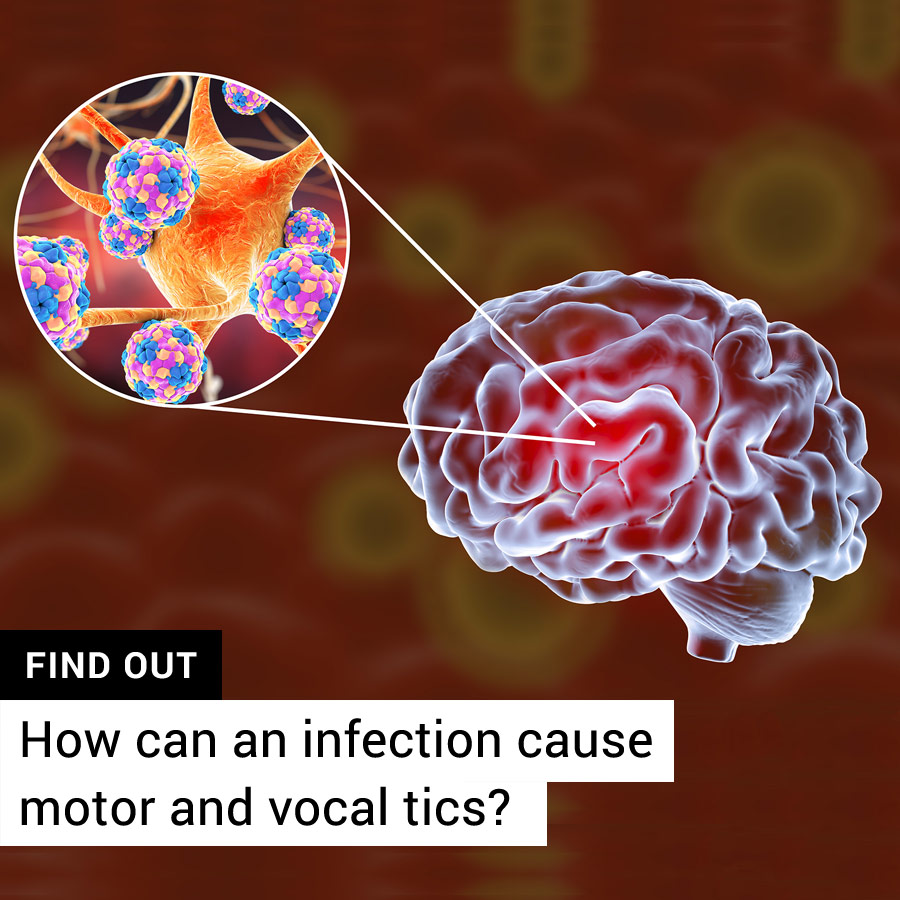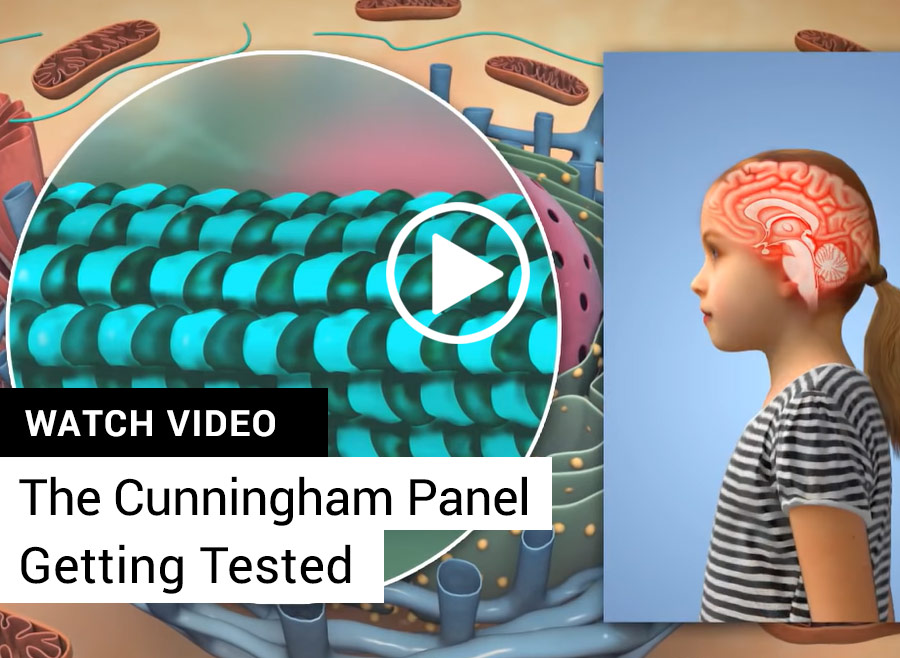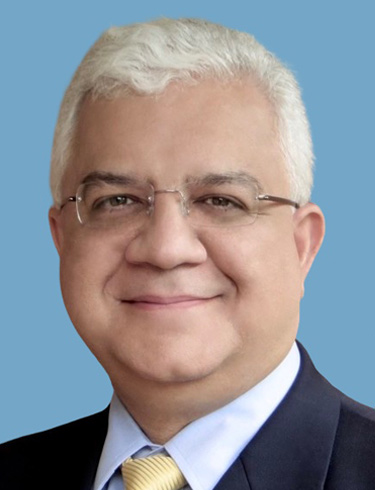Infections and sudden onset of tics in a child
Mounting evidence indicates that multiple types of infections (bacterial and viral) can trigger the sudden onset of tics in a child, adolescent or adult. Researchers believe that in some people, common infections trigger an abnormal immune response, which causes antibodies to attack healthy cells in the brain. This autoimmune attack on the brain can cause inflammation and the onset of neuropsychiatric symptoms, including tics.
According to the authors of one study, “Evidence points increasingly toward a role for infection and immune factors in at least a subset of [Tourette’s syndrome].” 2
Infections triggering motor and vocal tics is not new
The concept of infections triggering motor and vocal tics is not new. In 1929, a case series was published describing three boys who developed tics following surgery for sinusitis. 3 Since then, multiple infectious agents have been linked with tic disorders.
For example, Group A strep infections can cause a sudden onset of tics in a child or adolescent who is genetically susceptible. In these cases, the child’s tics may be the result of a treatable autoimmune disorder known as Pediatric Autoimmune Neuropsychiatric Disorders Associated with Strep infections (PANDAS).
PANDAS is characterized by an abrupt and sudden onset of tics and/or OCD in a child following an infection. It is not rare but often goes unrecognized by many clinicians. In fact, researchers estimate that at least 25% of children and adolescents diagnosed with obsessive-compulsive disorder (OCD) and tic disorders actually have PANDAS. 4
Neurologic tic disorder vs. an infection-induced autoimmune disorder
Making the distinction between a neurologic tic disorder and an infection-induced autoimmune disorder is important, since treatment differs for each.
Furthermore, individuals with chronic tics and/or OCD were found to have elevated levels of several antineuronal antibodies, which were detected using the the Cunningham Panel™. Elevated levels indicate that an infection-triggered autoimmune process may be causing a patient’s neuropsychiatric symptoms, such as tics. 5
A study co-authored by Dr. Madeleine Cunningham found a “significant correlation of streptococcal-associated tics and OCD with elevated anti-D1R and anti-Lysoganglioside antineuronal antibodies in serum concomitant with higher activation of CaMKII in human neuronal cells.” 5
Chronic tics and OCD may have underlying etiology
“Youth and young adults with chronic tics and OCD may have underlying infectious/immunologic etiology,” the authors concluded. 5
Researchers have also found that children who had multiple strep infections were at a greater risk of developing Tourette’s syndrome when compared to those who did not have repeated infections. 6
Watch Video: Study findings evaluating accuracy and sensitivity of the Cunningham Panel of tests for an infection-triggered autoimmune encephalopathy
Other types of infections can trigger a sudden onset of tics in a child. Borrelia burgdorferi (the bacteria causing Lyme disease), mycoplasma pneumoniae, and herpes simplex virus are believed to play a role in the pathogenesis of tic disorders, such as Tourette’s syndrome. 7
Additionally, the enterovirus (EV) has been associated with a greater incidence of tic disorders. 8 “Our observations add to the growing body of literature implicating the immune-inflammatory process as relevant to the pathoetiology of some mental disorders,” reports Tsai and colleagues. 8
- American Psychiatric Association. Diagnostic and Statistical Manual of Mental Disorders fifth edition. Washington (DC): American Psychiatric Association; 2013.
- Hornig M, Lipkin WI. Immune-mediated animal models of Tourette syndrome. Neurosci Biobehav Rev. 2013;37(6):1120–1138. doi:10.1016/j.neubiorev.2013.01.007 https://www.ncbi.nlm.nih.gov/pmc/articles/PMC4054816/
- Selling L. The role of infection in the etiology of tics. Arch Neurol Psychiatry. 1929;22:1163–1171.
- Westley, Erica. From Throat to Mind. Strep today, anxiety later? Scientific American. Jan. 1, 2010. https://www.scientificamerican.com/article/from-throat-to-mind
- Cox CJ, Zuccolo AJ, Edwards EV, et al. Antineuronal antibodies in a heterogeneous group of youth and young adults with tics and obsessive-compulsive disorder. J Child Adolesc Psychopharmacol. 2015;25(1):76–85. doi:10.1089/cap.2014.0048 https://www.ncbi.nlm.nih.gov/pmc/articles/PMC4340634/
- Mell LK, Davis RL, Owens D. Association between streptococcal infection and obsessive-compulsive disorder, Tourette’s syndrome, and tic disorder. Pediatrics. 2005;116:56–60.
- Krause DL, Müller N. The Relationship between Tourette's Syndrome and Infections. Open Neurol J. 2012;6:124–128. doi:10.2174/1874205X01206010124 https://www.ncbi.nlm.nih.gov/pmc/articles/PMC3514747/
- Tsai CS, Yang YH, Huang KY, Lee Y, McIntyre RS, Chen VC. Association of Tic Disorders and Enterovirus Infection: A Nationwide Population-Based Study. Medicine (Baltimore). 2016;95(15):e3347. doi:10.1097/MD.0000000000003347 https://www.ncbi.nlm.nih.gov/pmc/articles/PMC4839835/

Infections, such as strep and mycoplasma pneumonia, may trigger an onset of tics.
Learn more about how infections can trigger neuropsychiatric symptoms

The Cunningham Panel™ helped identify an underlying autoimmune disorder in a child initially diagnosed with schizophrenia.
Researchers describe a complex case involving a 15-year-old girl, who abruptly developed multiple neurologic and psychiatric symptoms.
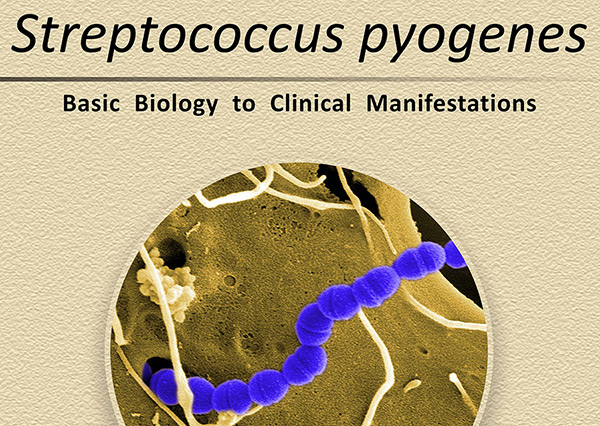
Association between streptococcus pyogenes and tics/OCD
In this book chapter, Dr. Madeleine Cunningham explains the association between Group A strep and the onset of tics and/or OCD and their clinical manifestations in children with the autoimmune neuropsychiatric disorder, PANDAS.
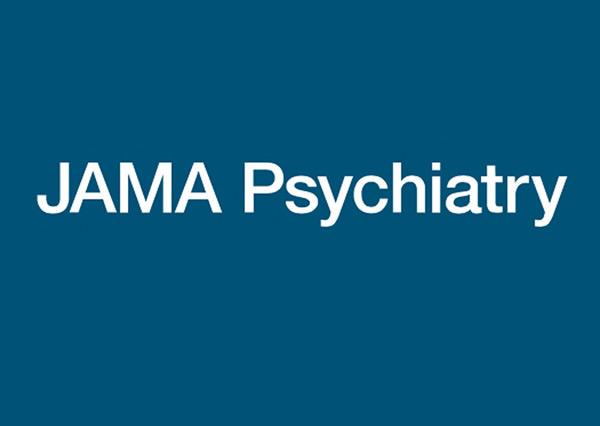
Childhood infections can increase risk of mental illness in kids
Nationwide study finds both mild and severe infections can increase risk of mental disorders in children and adolescents.




